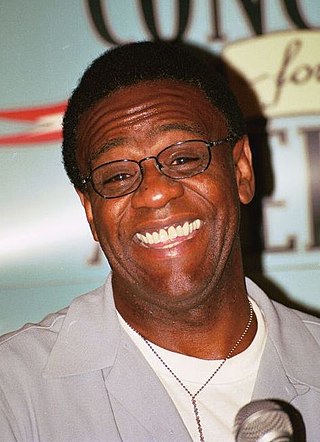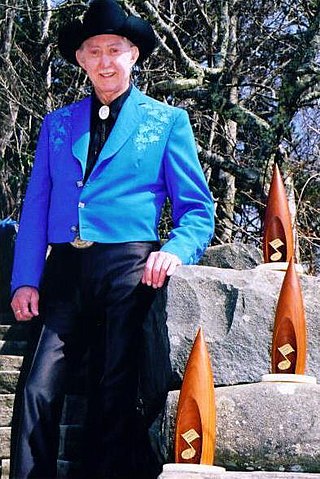
Albert Leornes Greene, known professionally as Al Green, is an American singer, songwriter, pastor and record producer best known for recording a series of soul hit singles in the early 1970s, including "Take Me to the River", "Tired of Being Alone", "I'm Still in Love with You", "Love and Happiness", and his signature song, "Let's Stay Together". After his girlfriend died by suicide, Green became an ordained pastor and turned to gospel music. He later returned to secular music.

Marie Dionne Warwick is an American singer, actress, and television host.

TLC is an American girl group formed in 1990 in Atlanta, Georgia. The group's best-known line-up was composed of Tionne "T-Boz" Watkins, Lisa "Left Eye" Lopes, and Rozonda "Chilli" Thomas. The group enjoyed success during the 1990s, with nine top-ten hits on the Billboard Hot 100, including four number-one singles: "Creep", "Waterfalls", "No Scrubs", and "Unpretty". The group also recorded four multi-platinum albums, including CrazySexyCool (1994), which received a diamond certification from the Recording Industry Association of America (RIAA). TLC became the first R&B group in history to receive the million certification from the Recording Industry Association of Japan (RIAJ) for FanMail (1999).

Exposé is an American freestyle vocal group formed in 1984 in Miami, Florida. The group primarily consisted of lead vocalists Jeanette Jurado, Ann Curless, and Gioia Bruno, who achieved much of their success between 1984 and 1993. They became the first group to attain four top-10 entries on the Billboard Hot 100 since their debut album, including 1988 number-one single "Seasons Change." As an all-female group, Exposé’s seven consecutive Top 10 hits on the US Hot 100, landed them only behind The Supremes nine consecutive Top 10 hits. In March 2015, Billboard magazine named the group the eighth most-successful girl group of all-time.

Brooks & Dunn are an American country music duo consisting of Kix Brooks and Ronnie Dunn, both of whom are vocalists and songwriters. The duo was founded in 1990 through the suggestion of songwriter and record producer Tim DuBois. Before their formation, both members were solo recording artists, having charted two solo singles apiece in the 1980s. Brooks also released an album for Capitol Records in 1989 and wrote hit singles for other artists.

Buddah Records was an American record label founded in 1967 in New York City. The label was born out of Kama Sutra Records, an MGM Records-distributed label, which remained a key imprint following Buddah's founding. Buddah handled a variety of music genres, including bubblegum pop, folk rock (Melanie), experimental music, and soul.

Buffalo Springfield is the debut album by the folk rock band Buffalo Springfield, released in October 1966 on Atco Records. Band members Stephen Stills and Neil Young wrote all the material on the album.

Black Tie White Noise is the 18th studio album by the English musician David Bowie, released on 5 April 1993 through Savage Records in the United States and Arista Records in the United Kingdom. Conceived following Bowie's marriage to model Iman and the disbandment of his rock band Tin Machine, it was recorded throughout 1992 between studios in Montreux, Los Angeles and New York City. Bowie co-produced with his Let's Dance (1983) collaborator Nile Rodgers, who voiced dissatisfaction with the project in later decades. The album features several guest appearances, including previous collaborators Mike Garson and Mick Ronson, and new arrivals Lester Bowie and Chico O'Farrill.

Same Train, A Different Time is the ninth studio album by American country music artist Merle Haggard backed by The Strangers, released in 1969, featuring covers of songs by legendary country music songwriter Jimmie Rodgers. It was originally released as a 2 LP set on Capitol (SWBB-223).

"You Don't Know Me" is a song written by Eddy Arnold and Cindy Walker in 1955. "You Don't Know Me" was first recorded by Arnold that year and released as a single on April 21, 1956, on RCA Victor. The best-selling version of the song is by Ray Charles, who took it to number 2 on the Billboard Hot 100 chart in 1962, after releasing the song on his number 1 album Modern Sounds in Country and Western Music. The first version of the song to make the Billboard charts was by Jerry Vale in 1956, peaking at number 14 on the pop chart. Arnold's version charted two months later, released as an RCA Victor single, 47–6502, backed with "The Rockin' Mockin' Bird", which reached number 10 on the Billboard country chart. Cash Box magazine, which combined all best-selling versions at one position, included a version by Carmen McRae that never appeared in the Billboard Top 100 Sides listing.

Jack Henry Greene was an American country musician. Nicknamed the "Jolly Greene Giant" due to his height and deep voice, Greene was a long time member of the Grand Ole Opry. A three-time Grammy Award nominee, Greene is best known for his 1966 hit, "There Goes My Everything". The song dominated the country music charts for nearly two months in 1967 and earned Greene "Male Vocalist of the Year", "Single of the Year", "Album of the Year" and "Song of the Year" honors from the Country Music Association. Greene had a total of five No. 1 country hits and three others that reached the top ten. Billboard magazine named Greene one of the Top 100 "Most Played Artists".

Lee Roy Parnell is an American country music and blues artist, singer, songwriter, and guitarist. Active since 1990, he has recorded eight studio albums, and has charted more than twenty singles on the Billboard Hot Country Singles & Tracks charts. His highest-charting hits are "What Kind of Fool Do You Think I Am" (1992), "Tender Moment" (1993), and "A Little Bit of You" (1995), all of which peaked at No. 2. Four more of his singles have charted in the Top Ten as well. Parnell made a shift in the early 2000s back to the bluesier sounds of his early works, releasing two blues albums on Vanguard Records and Universal South. Besides his own work, Parnell has played slide guitar and National guitar on several other country and blues recordings.

The Brecker Brothers were a jazz fusion music duo consisting of siblings Michael and Randy. Michael played saxophone, flute, and EWI, and Randy played trumpet and flugelhorn. The brothers attended Cheltenham High School in Wyncote, Pennsylvania.

Ray, Goodman & Brown is an American R&B vocal group. The group originated as The Moments, who formed in the mid-1960s and whose greatest successes came in the 1970s with hits including "Love on a Two-Way Street", "Sexy Mama", and "Look at Me ". In 1978, they changed their name to Ray, Goodman & Brown and had further hits, including "Special Lady".

Do You is the sixth English-language studio album from Scottish singer Sheena Easton. It was originally released in November 1985 by EMI Records, and later reissued and remastered by One Way Records in 2000, with additional B-sides and extended mixes. The album was produced by Nile Rodgers. Not as successful as her previous album, Do You peaked at number 40 in the US, but was certified gold and featured the top 30 hit "Do It for Love".

"Then You Can Tell Me Goodbye" is a song written by John D. Loudermilk. It was first released in 1962 by Don Cherry, as a country song and again as a doo-wop in 1967 by the group The Casinos on its album of the same name, and was a number 6 pop hit that year. The song has since been covered by Eddy Arnold, whose version was a number 1 country hit in 1968, and by Neal McCoy, whose version became a Top 5 country hit in 1996.

"You Don't Love Me" is a rhythm and blues-influenced blues song recorded by American musician Willie Cobbs in 1960. Adapted from Bo Diddley's 1955 song "She's Fine She's Mine", it is Cobbs' best-known song and features a guitar figure and melody that has appealed to musicians in several genres.

Greatest Hits is the first compilation album released by American singer Melissa Manchester. It was issued by Arista Records in 1983, shortly after the release of Manchester's biggest hit, the new wave top 10 hit "You Should Hear How She Talks About You".

The discography of American country artist Jack Greene contains 24 studio albums, one live album, four compilation albums, 40 singles and five other charted songs. He gained national attention as a drummer and background vocalist in Ernest Tubb's band. He soon signed a recording contract with Decca Records. Greene's second single, "Ever Since My Baby Went Away", became his first song to chart, reaching number 37 on the Billboard Hot Country Singles chart. Greene's next single, "There Goes My Everything", reached number 1 on the Billboard country chart in December 1966. Becoming his biggest hit, the song also was his only single to reach the Billboard Hot 100, peaking at number 65.


















